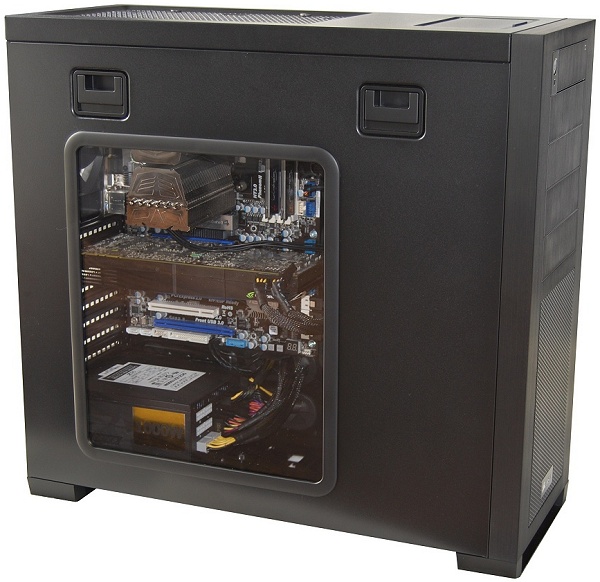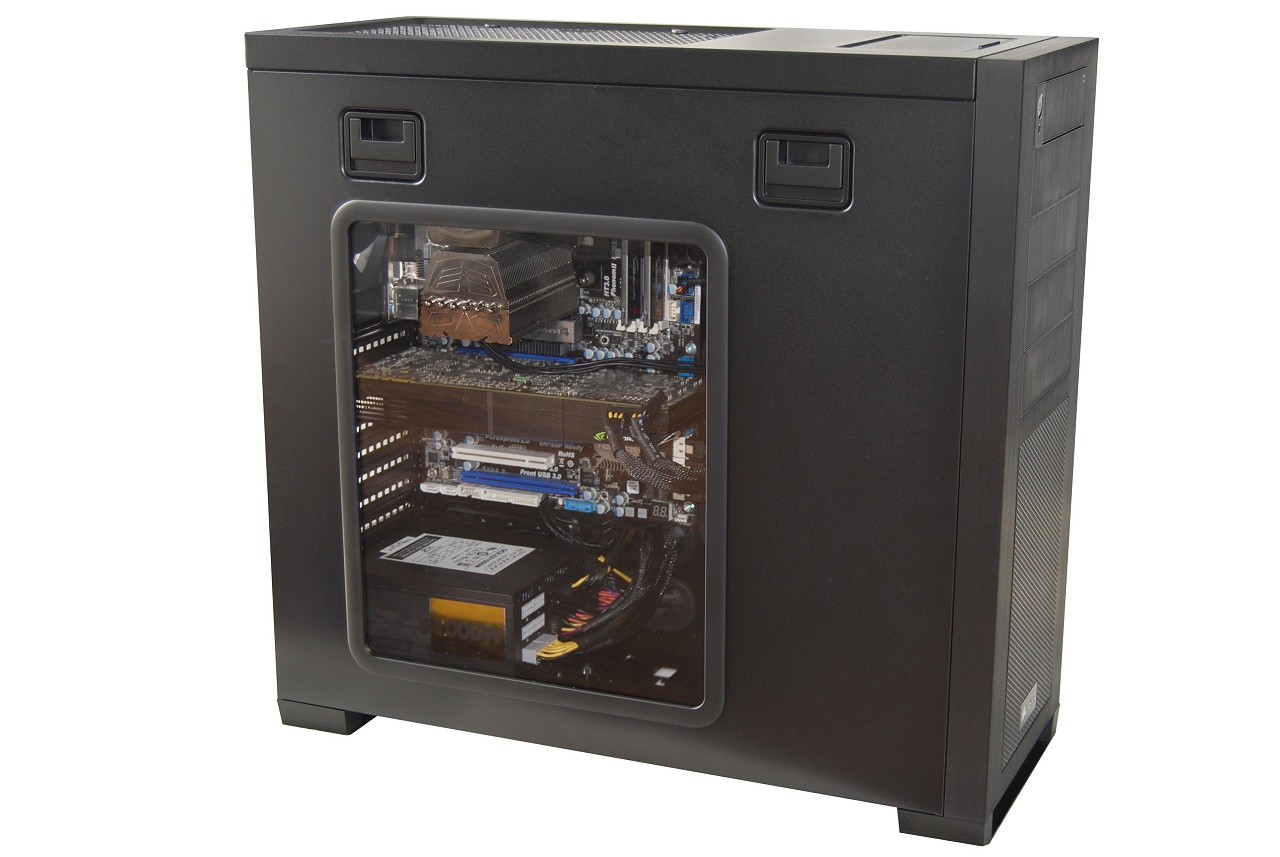Final Thoughts
Having inspected every nook and cranny of the Corsair Obsidian 650D, we have no doubt it's a high-quality product that shines in virtually every category. Perhaps the only true weakness of Corsair's new arrival is its price. At $190, we're inclined to believe that the mid-tower teeters on unacceptable for the average system builder. That same price bracket is home to full-tower heavyweights like the HAF X.
At least a couple premium mid-towers can be directly compared to the Obsidian 650D in terms of design and features – namely the Antec LanBoy Air and Silverstone Fortress FT01-BW. You can read our review of the LanBoy Air for our full analysis, but to keep things short and sweet we'll just say that we don't care for it much, and the Fortress FT01-BW costs even more (~$210) than the 650D.
Meanwhile, it's not like the sub-$100 mid-tower market is lacking solid options with high-quality enclosures such as the Cooler Master Storm Enforcer (~$90) or Lian-Li Lancool PC-K63 (~$100) – neither of which is light on features. Both of those cases make more sense from a value perspective and they make it hard to understand why Corsair is charging roughly twice as much for the 650D.

As impressive as its design is, and as nice as its all black cables are, we fail to see where the extra $100 have been spent. Hot-swappable 3.5" drive bays could have pulled the trick and justified the price premium – for two different reasons. Besides their obvious functional appeal, hot-swappable hard drive bays would've solved our biggest issue with the 650D's design: there's very little room behind the hard drive's SATA power cables and we had a difficult time getting the right case door back on without it bulging.
Furthermore, to remove a hard drive from the 650D's internal cages, you must detach both case doors. The doors are pretty easy to move thanks to their tool-free design, but this is still an annoyance. As a side note, we would have also appreciated the inclusion of an eSATA port on the front panel.
It probably sounds like we're throwing the Obsidian 650D under a bus, but that's not an accurate representation of our feelings overall. We really liked Corsair's take on tool-free drive installation and the case does offer one external 2.5"/3.5" dock for quick drive hookups. The fan speed controller is also a nice touch, as is the hidden front I/O panel.
The Obsidian 650D also fared pretty well in our thermal tests, delivering similar performance as the Lian-Li Lancool PC-K63 and the larger Thermaltake Chaser MK-1. In fact, its thermal readings barely increased when switching between high and low fan speeds. As noted, the quick release panels are awesome as they make it easier to enter the case, and we like how simple the dust filters are to remove.
It's fair to say that the Obsidian 650D is a high quality case in all respects. Its subtle styling is very attractive, its installation and thermal performance are commendable and it has all the trappings your average enthusiast might demand in a chassis. Unfortunately, at $190 it's not a great value proposition, and so we have a hard time believing the 650D is aimed at the average enthusiast. Here's hoping Corsair will cut the price a little which could have deserved it our editor's award.
